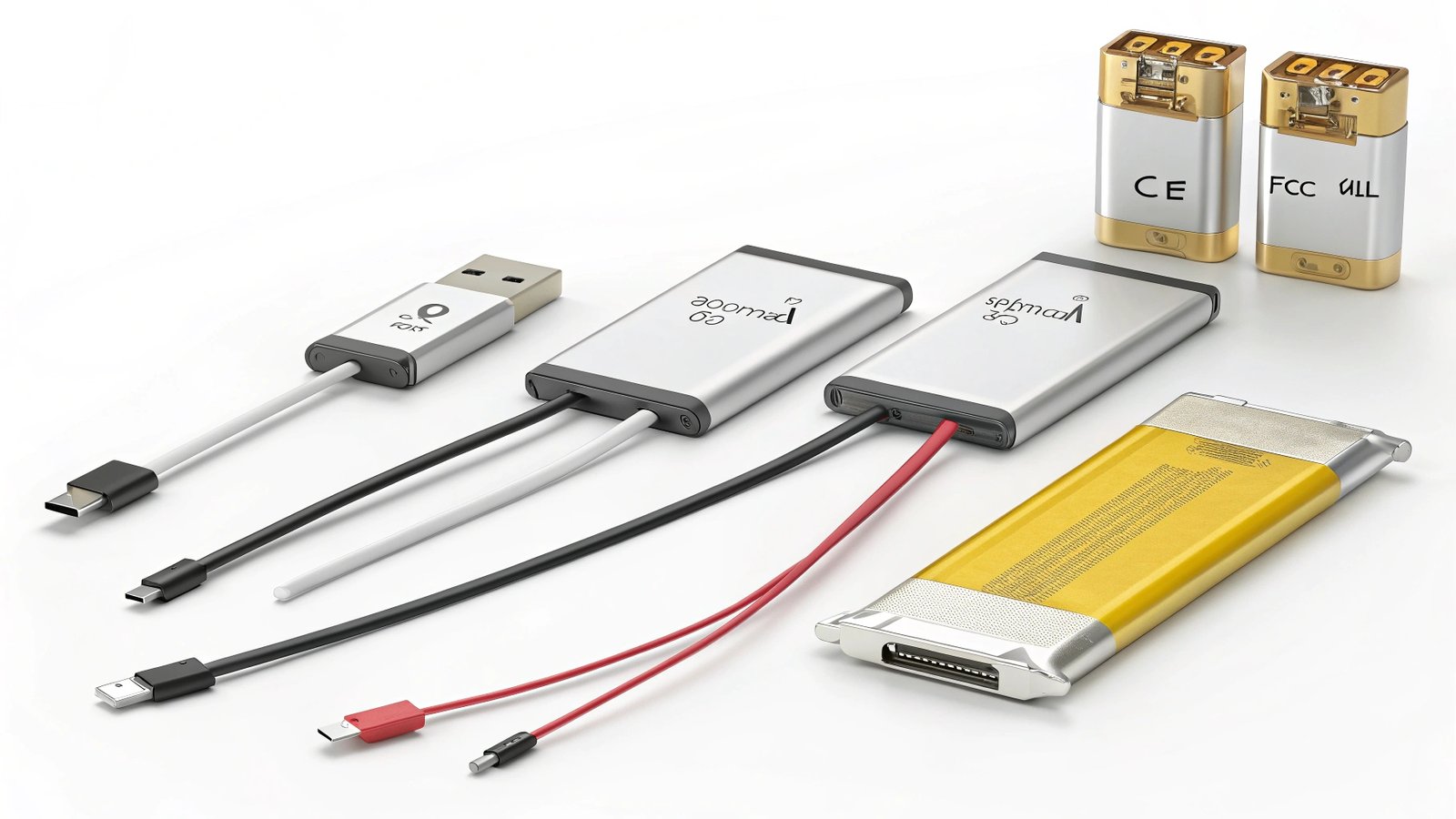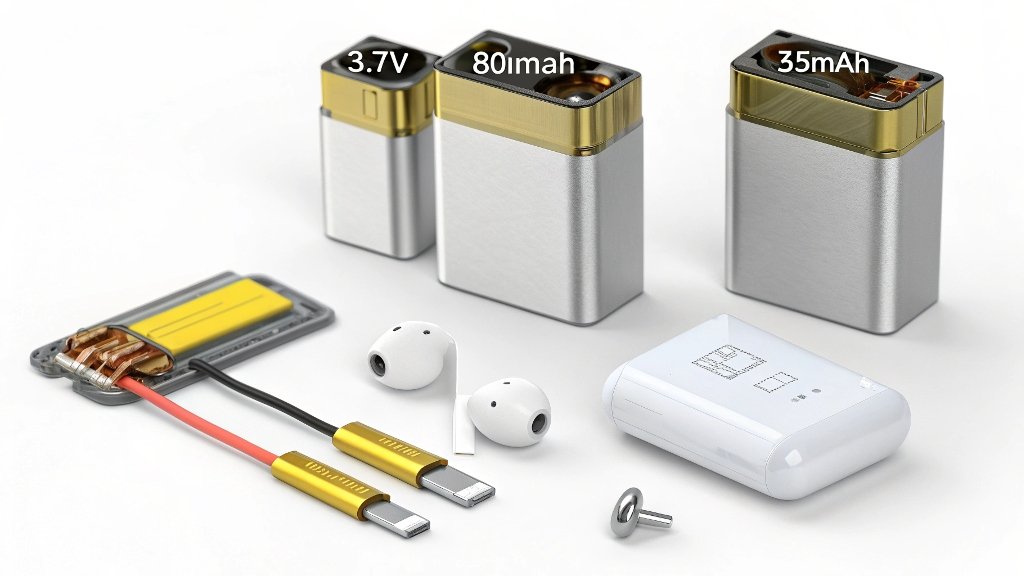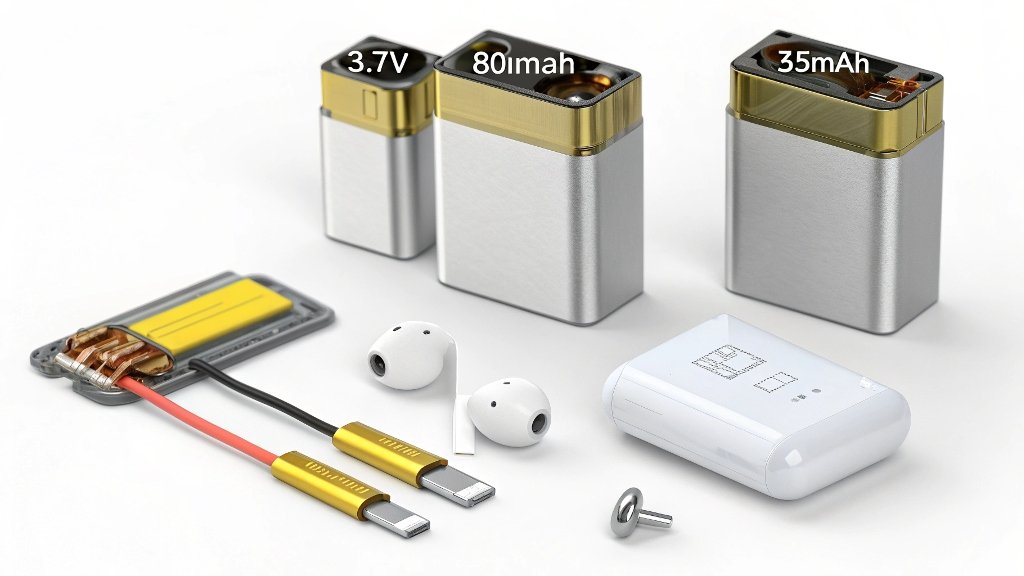
Choosing the right battery for your device can be tricky. The decision between Lithium-ion (Li-ion)1 and Lithium Polymer (LiPo) batteries can significantly affect the performance, safety, and longevity of your product. But which one is really better? Let’s dive in and compare the strengths and weaknesses of both battery types2.
Both Li-ion and LiPo batteries have unique advantages and are ideal for different applications. By understanding their differences, you can choose the one that best fits your device’s needs. Let’s explore their key features and determine which one is the better choice.
To help you make an informed decision, we will break down the key differences between Li-ion3 and LiPo4 batteries, focusing on energy density, lifespan, safety, and suitability for different applications.
Table of Contents
ToggleWhat Are Lithium-ion Batteries?
Lithium-ion batteries are a popular choice for a wide variety of devices. But what makes them the preferred option for so many applications?
Li-ion batteries use a liquid electrolyte5 and are known for their high energy density6, long lifespan, and low self-discharge rate. These batteries are widely used in smartphones, laptops, power tools, and even electric vehicles.

Key Features of Lithium-ion Batteries:
- High Energy Density7: Stores a large amount of energy in a compact form.
- Long Lifespan8: Typically lasts 2-3 years or 300-500 charge cycles.
- Low Self-Discharge Rate: Retains charge longer when not in use.
- Sensitive to High Temperatures: Can degrade if exposed to extreme heat.
- Requires Battery Management System (BMS)9: Helps prevent overheating and extends battery life.
Common Applications:
| Application | Reason for Use |
|---|---|
| Smartphones | Compact & long-lasting |
| Laptops | High energy efficiency |
| Electric Vehicles | High power output |
| Solar Storage | Reliable performance |
At SY Battery, we provide custom Li-ion battery packs10 with advanced safety features11 and BMS to ensure reliability and longevity for our clients’ applications.
What Are Lithium Polymer Batteries?
Lithium Polymer (LiPo) batteries12 are designed with flexibility in mind. But how do they differ from traditional Li-ion batteries? Let’s find out.
LiPo batteries use a solid or gel-like electrolyte13, allowing for flexible designs. This makes them perfect for compact, lightweight devices such as drones, wearables, and portable electronics.

Key Features of Lithium Polymer Batteries:
- Flexible & Lightweight: Can be molded into various shapes and sizes.
- Higher Energy Density Potential14: Stores more energy in a lighter package.
- Higher Self-Discharge Rate: Loses charge faster when not in use.
- More Vulnerable to Physical Damage15: Requires careful handling to avoid punctures.
- Specialized Charging Requirements16: Needs dedicated LiPo chargers to prevent overcharging.
Common Applications:
| Application | Why Choose LiPo? |
|---|---|
| Wearable Tech | Ultra-light & flexible |
| Drones | High power-to-weight ratio |
| RC Vehicles | Compact & high output |
| Tablets | Slim & efficient |
To ensure safe use, LiPo batteries require specialized chargers and proper handling. At SY Battery, we design custom LiPo battery packs with reinforced safety features for optimal performance.
Lithium-ion vs Lithium Polymer: Which is Better?
| Feature | Lithium-ion (Li-ion) | Lithium Polymer (LiPo) |
|---|---|---|
| Electrolyte | Liquid electrolyte | Solid or gel-like electrolyte |
| Energy Density | High | Higher potential energy density |
| Form Factor | Rigid, cylindrical or rectangular | Flexible, can be molded into various shapes |
| Self-Discharge Rate | Low | Higher |
| Durability | More resistant to physical damage | More vulnerable to punctures or damage |
| Charging & Maintenance | Easier to charge, widely available chargers | Requires specialized chargers, more careful handling |
| Safety | Higher risk of thermal runaway | Less prone to leakage, but more vulnerable to damage |
| Lifespan | Long (300-500 cycles) | Shorter, but can be optimized with proper charging |
| Applications | Smartphones, laptops, electric vehicles | Drones, wearables, RC vehicles |
Choosing the Right Battery for Your Needs
- For high-power, long-lasting applications like electric vehicles, solar storage systems, or power tools, Lithium-ion (Li-ion) batteries are the best choice due to their long lifespan17 and high energy density.
- For lightweight, compact devices like wearable tech, drones, and portable electronics, Lithium Polymer (LiPo) batteries excel due to their flexibility and compact form factors.
Factors to Consider:
| Factor | Best Battery Type |
|---|---|
| Long Battery Life | Lithium-ion |
| Compact & Lightweight | Lithium Polymer |
| High Power Output | Lithium-ion |
| Flexible Design | Lithium Polymer |
Conclusion
The choice between Lithium-ion (Li-ion) and Lithium Polymer (LiPo) batteries depends on your specific application:
- Li-ion batteries are ideal for applications requiring long lifespan, higher energy density, and stable performance, such as electric vehicles and laptops.
- LiPo batteries are best for compact, lightweight devices that need flexible designs, such as drones, wearables, and RC vehicles.
At SY Battery, we specialize in providing custom Li-ion and LiPo battery solutions tailored to your unique needs. Whether you need a long-lasting and high-power battery pack or a lightweight and flexible battery solution, we have you covered.
Looking for a Custom Battery Solution?
Contact us today to get expert advice and the best battery solution for your business!
-
Explore the benefits of Lithium-ion batteries to understand why they might be the best choice for your device. ↩
-
Learn about various battery types to make an informed decision for your device’s power needs. ↩
-
Explore this link to understand the benefits and limitations of Li-ion batteries, which are crucial for making informed choices in technology. ↩
-
Discover the unique advantages of LiPo batteries, especially in high-performance applications, to see if they fit your needs. ↩
-
Learn about the role of liquid electrolytes in battery performance and efficiency. ↩
-
Discover the significance of high energy density in battery technology and its impact on device performance. ↩
-
Explore the advantages of high energy density batteries and how they can enhance energy storage solutions. ↩
-
Learn about the lifespan of lithium-ion batteries and factors that influence their longevity. ↩
-
Discover the critical role of BMS in battery safety and performance, ensuring optimal operation. ↩
-
Explore this link to understand how custom Li-ion battery packs can enhance performance and meet specific needs in various applications. ↩
-
Discover the latest advancements in safety features that can protect your battery systems and ensure user safety. ↩
-
Explore the unique benefits of LiPo batteries, including their flexibility and performance, to understand why they might be the better choice for your needs. ↩
-
Learn about solid and gel-like electrolytes to grasp their role in battery performance and safety. ↩
-
Understanding the advantages of higher energy density can help you choose better battery options for your needs. ↩
-
Discovering proper handling techniques can extend the life of your batteries and ensure safety. ↩
-
Learning about LiPo charging requirements is crucial for safe and effective battery management. ↩
-
Learn how the long lifespan of Li-ion batteries enhances their efficiency and reliability in solar storage applications. ↩

